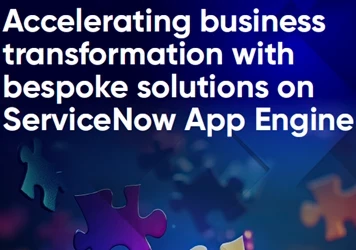Businesses need more AI, OPEX & digital skills to support transformation
Access to required skills and talent is a major business transformation challenge
Add bookmark
Organizations need more skills in artificial intelligence (AI), operational excellence (OPEX)/process excellence and digital transformation to support business transformation. That’s a key finding from the PEX Report 2025/26, based on the results of a survey of more than 200 professionals.
Nearly two thirds of respondents (62 percent) say they need more AI skills and capabilities to stay competitive, followed closely by OPEX/process excellence (61 percent) and digital transformation (49 percent).
Strategy execution (46 percent), change management (45 percent) and leadership (44 percent) are the next most in-demand skills/capabilities, followed by Agile and/or Lean (32 percent).
Access to required skills and talent was voted the sixth biggest business transformation challenge, cited by 31 percent of those polled.
Join the PEX Network community

Don't miss any news, updates or insider tips from PEX Network by getting them delivered to your inbox. Sign up to our newsletter and join our community of experts.
Learn MoreWhy do organizations need AI, OPEX and digital transformation skills?
“The findings line up with what I’ve seen time and time again,” commented Jeff Winter, digital transformation thought leader and Top LinkedIn Voice. “AI (especially recently), OPEX and digital transformation top the list, not because they’re easy, but because they’re visible. They’re the goals everyone rallies around, but to really understand what is happening, you need to lift the hood.”
Strategy execution, leadership and change management – these are almost always where the real gaps are, and they are the ones that make or break transformation, he added. “Invest in upskilling the talent you already have; that’s cheaper and stickier than chasing unicorn hires.”
“Companies are over-relying on AI and automation to compensate for missing expertise, but in reality, these technologies are exposing workforce deficiencies rather than solving them,” said Kaveh Vahdat, founder and president at RiseOpp.
Businesses still need employees who understand AI strategy, automation oversight and data-driven decision-making – skills that aren’t widespread, he added. “Without prioritizing upskilling, transformation efforts will continue to stall because AI can’t fix what leaders don’t understand, at least not yet.”

Register for All Access: AI in Business Transformation 2025!
What are the biggest business transformation challenges?
Respondents cite cost/budget limitations (58 percent) as the greatest business transformation challenge they will face in the next 12 months, followed by change management (39 percent), adopting and deploying new technologies (37 percent) and linking process improvement with top-level business strategy (33 percent).
Outside of skills shortages, other challenges include overcoming resistance (33 percent) and leadership buy-in (29 percent). Economic uncertainties (29 percent), sustaining change (24 percent) and ensuring a customer-centric focus throughout the business (24 percent) are also concerns, as are lack of alignment between business and IT departments (23 percent). Less-cited challenges include deploying new operational business models, communication, education and understanding.
Join us at All Access: OPEX Operational Excellence 2025!
WEF examines skills gaps in business transformation
The World Economic Forum (WEF) recently published the Future of Jobs Report, compiling the findings of an extensive survey of more than 1,000 global employers. Skill gaps were cited as the biggest barrier to business transformation by respondents, with 63 percent of employers identifying them as a major barrier over the 2025-2030 period.
Accordingly, 85 percent of employers surveyed plan to prioritize upskilling their workforce, with 70 percent of employers expecting to hire staff with new skills, 40 percent planning to reduce staff as their skills become less relevant and 50 percent planning to transition staff from declining to growing roles.
Analytical thinking is the most sought-after core skill among employers, with 70 percent of survey respondents considering it as essential in 2025. This is followed by resilience, flexibility and agility, along with leadership and social influence.
AI and big data topped the list of fastest-growing skills, followed closely by networks and cyber security as well as technology literacy. Complementing these technology-related skills, creative thinking, resilience, flexibility and agility, along with curiosity and lifelong learning, are also expected to continue to rise in importance over the 2025-2030 period.
In contrast, manual dexterity, endurance and precision stand out with notable net declines in skills demand, with 24 percent of respondents foreseeing a decrease in their importance.














